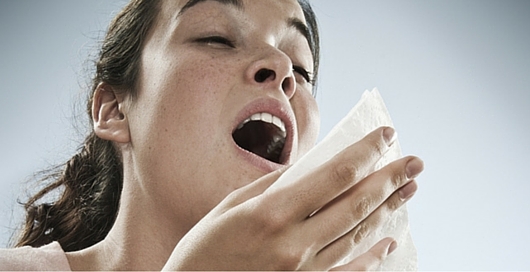With Spring comes… Hay Fever!
Spring is one of the most beautiful seasons in Vancouver: Gardens bloom, whales migrate and the entire city comes alive. However, for some people, spring is like a nightmare that causes congestion, runny nose, and red, itchy eyes. Some people cannot even go outside without a mask!
These symptoms are referred to as Hay Fever, or “seasonal allergic rhinitis.” This is an extremely common condition in North America, affecting approximately 10% of the population.
Hay Fever is a reaction to allergens in the environment.
For the science nerds: when pollen enters the airways of people who are allergic to it, it causes mast cells to release biologically active substances, which cause:
- smooth muscle contraction
- increased vascular permeability
- serous secretions and
- other pathological changes.
Typical Hay Fever Symptoms include:
- itchy eyes & throat
- runny nose
- sneezing
- sinus congestion
- headaches
- Coughing
Chinese Medicine & Acupuncture Diagnosis
From a Chinese Medicine perspective, hay fever is due to a deficiency in “Wei Qi”(or protective Qi) as well as and invasion of “Wind-Cold” into the body.
In spring, when our Yang Qi is growing, it tries to expel pathogenic Wind and Cold out of the body, which is what causes the above symptoms.
Chinese Medicine is very effective in treating Hay Fever!
Chinese Medicine is used to strengthen Wei Qi and eliminate Wind-Cold. In the acute stage, symptoms can be relieve complete after 1-2 acupuncture treatments combined with herbal medicine. If you continue taking herbs for 2-3 weeks, the symptoms can be completely cured!
As an additional bonus, Acupuncture and Chinese Medicine treatment for allergies have little to no side effects.
Extra Home Tips to Treat Hay Fever:
Steam Inhalation:
Boil 25g of each of the following herbs, then use as a steam inhalation for nose and eyes:
- Xixin (Asarum), Baizhi (Angelica)
- Cangzhu (Atractylodes lancea)
Acupressure Point:
Rub Yingxiang Point, AKA Large Intestine 20.
It’s located at the bottom and to the side of each nostril–right at the top of your smile line. Using your thumb to rub this point can dilate the capillary(s) around (the) nose, and is great for relieving congestion and a runny nose.
Take Vitamin C:
Studies have shown vitamin C to be a good anti-inflammatory.
Washing your nose with salty water.
Take Probiotics:
Probiotics can enhance immune function and relieve allergy symptoms.

